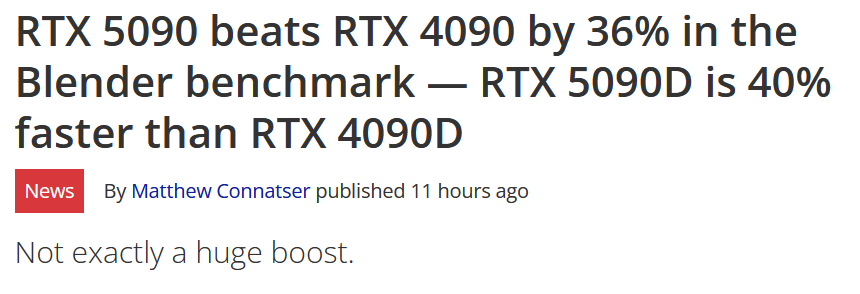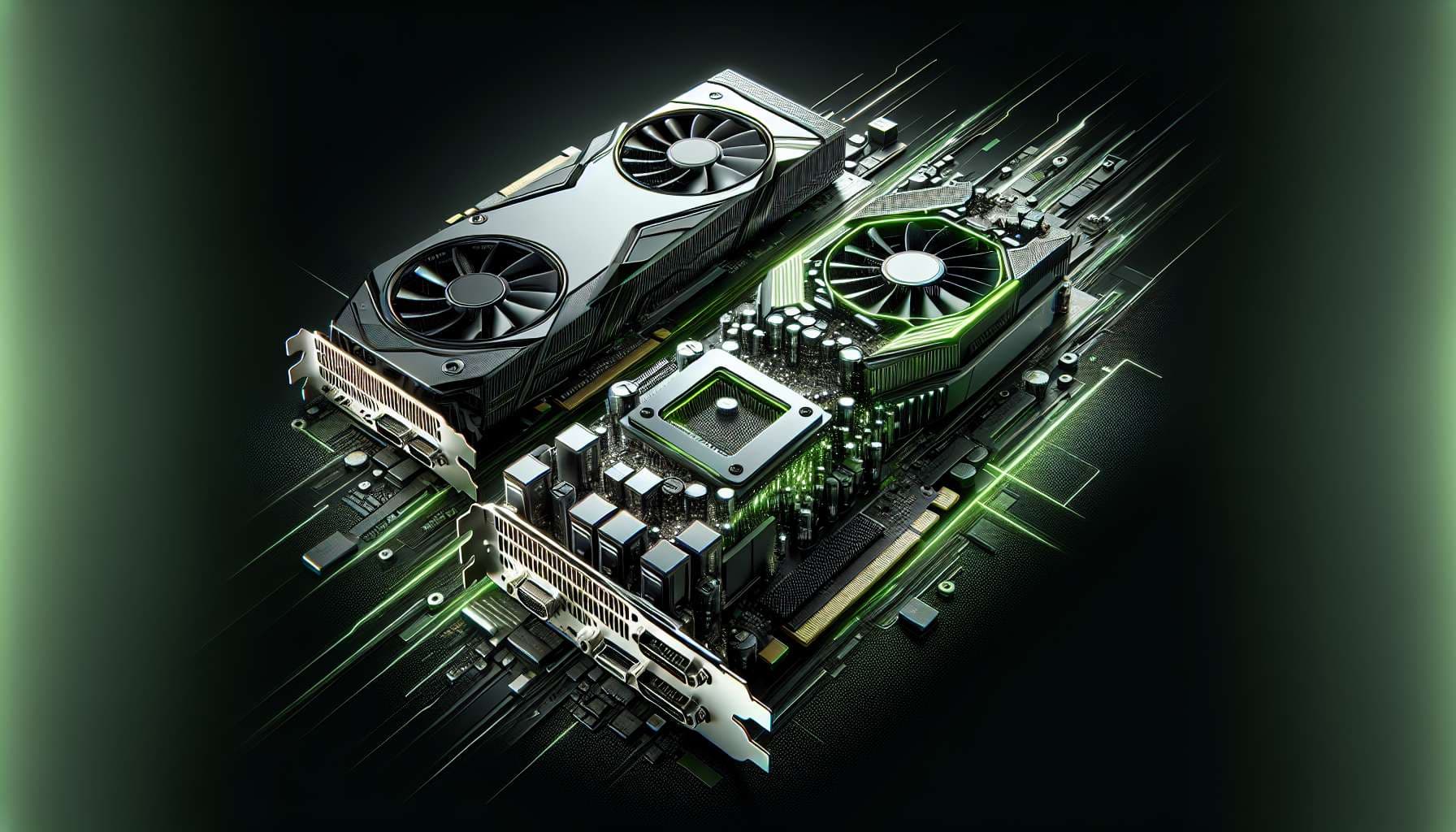
This question will be resolved as soon as a review is published by TechPowerUp. The performance comparison will be based on the average frame rate achieved by the standard variant of the GPU at 4K resolution. Currently, the RTX 4090 achieves an average of 109.2 FPS, as reported by https://www.techpowerup.com/review/intel-arc-b580/31.html :

If the RTX 4090 maintains its frame rate, the new flagship GPU would need to reach an average of at least 218.4 FPS to be considered "100%+ faster".
If TechPowerUp doesn't publish a review, I'll use some other source, like e.g. TomsHardware.
Update 2025-09-01 (PST): - Performance Measurements: TechPowerUp's average frame rates are calculated without DLSS, which may result in the RTX 5090 appearing significantly slower than NVIDIA's claims based on aggressive DLSS settings. (AI summary of creator comment)
Update 2025-16-01 (PST) (AI summary of creator comment): Resolution Criteria Update:
Performance comparison will focus on non-upscaling and non-frame-generation metrics.
Frame generation features will be considered a secondary aspect and not included in the primary performance benchmarks.
🏅 Top traders
| # | Trader | Total profit |
|---|---|---|
| 1 | Ṁ137 | |
| 2 | Ṁ95 | |
| 3 | Ṁ44 | |
| 4 | Ṁ23 | |
| 5 | Ṁ12 |
People are also trading
Resolves as "20%-39% faster"
The 5090 RTX is 34.7% faster than the 4090 RTX according to
https://www.techpowerup.com/review/nvidia-geforce-rtx-5090-founders-edition/33.html

According to https://videocardz.com/newz/nvidia-geforce-rtx-5090-reviews-go-live-january-24-rtx-5080-on-january-30, the reviews of the 5090 will go live on January 24. I've adjusted the closing date of this market accordingly. It will resolve as soon as TechPowerUp publishes its review.

Tom's Hardware has decided to primarily focus on the no-upscaling, non-frame-generation performance, where the 5090 will presumably be quite slow. I suspect it will be the same in TechPowerUp's review that will be used for resolving this market..
https://www.tomshardware.com/pc-components/gpus/benchmarking-blackwell-and-rtx-50-series-gpus-with-multi-frame-generation-will-require-some-changes-according-to-nvidia
"It's also why, for the time being, our GPU reviews will primarily focus on non-upscaling, non-framegen performance as the baseline, where image quality shouldn't differ too much. We can do some testing of upscaling and framegen as well, but that will be a secondary consideration.
And we feel that's pretty fair. Because no matter how much marketing gets thrown at the problem, frame generation differs from rendering and upscaling. It adds latency, and while it makes the visuals on your display smoother, 100 FPS with framegen doesn't feel the same as 100 FPS without framegen — and certainly not the same as 100 FPS with multi-frame generation! Without framegen, user input would get sampled every ~10ms. With framegen, that drops to every ~20ms. With MFG, it could fall as far as sampling every ~40ms"
From https://www.techpowerup.com/review/nvidia-geforce-rtx-50-technical-deep-dive/2.html
"NVIDIA also highlighted the enhanced efficiency brought by DLSS 4. With DLSS on, gamers not only enjoy improved frame rates but also reduced latency, when considering absolute milliseconds. In direct comparisons with previous-generation models, the RTX 5090 shows 30-40% performance increase without DLSS 4, and more than +100% when multi-frame-gen is enabled. Do wait for our reviews though."
It increasingly appears that NVIDIA did not significantly improve rasterization, only adding 33% more of essentially the same hardware while slightly reducing the clock speed. The only area they seem to have greatly improved is 4-bit tensor performance, while also significantly increasing memory bandwidth to support the AI units. This plausibly results in over 100% more performant DLSS and, on average, less than 40% improvement in rasterization.
TomsHardware has published the specifications of the 5090 and contemplates the question of whether it will be twice as fast as the 4090. NVIDIA claims that it is, but this claim seems to be based on very aggressive DLSS settings. TechPowerUp's averages that will be use to resolve this market are typically calculated without DLSS, which might result in the GPU appearing significantly slower than one would expect after more than two years of waiting.
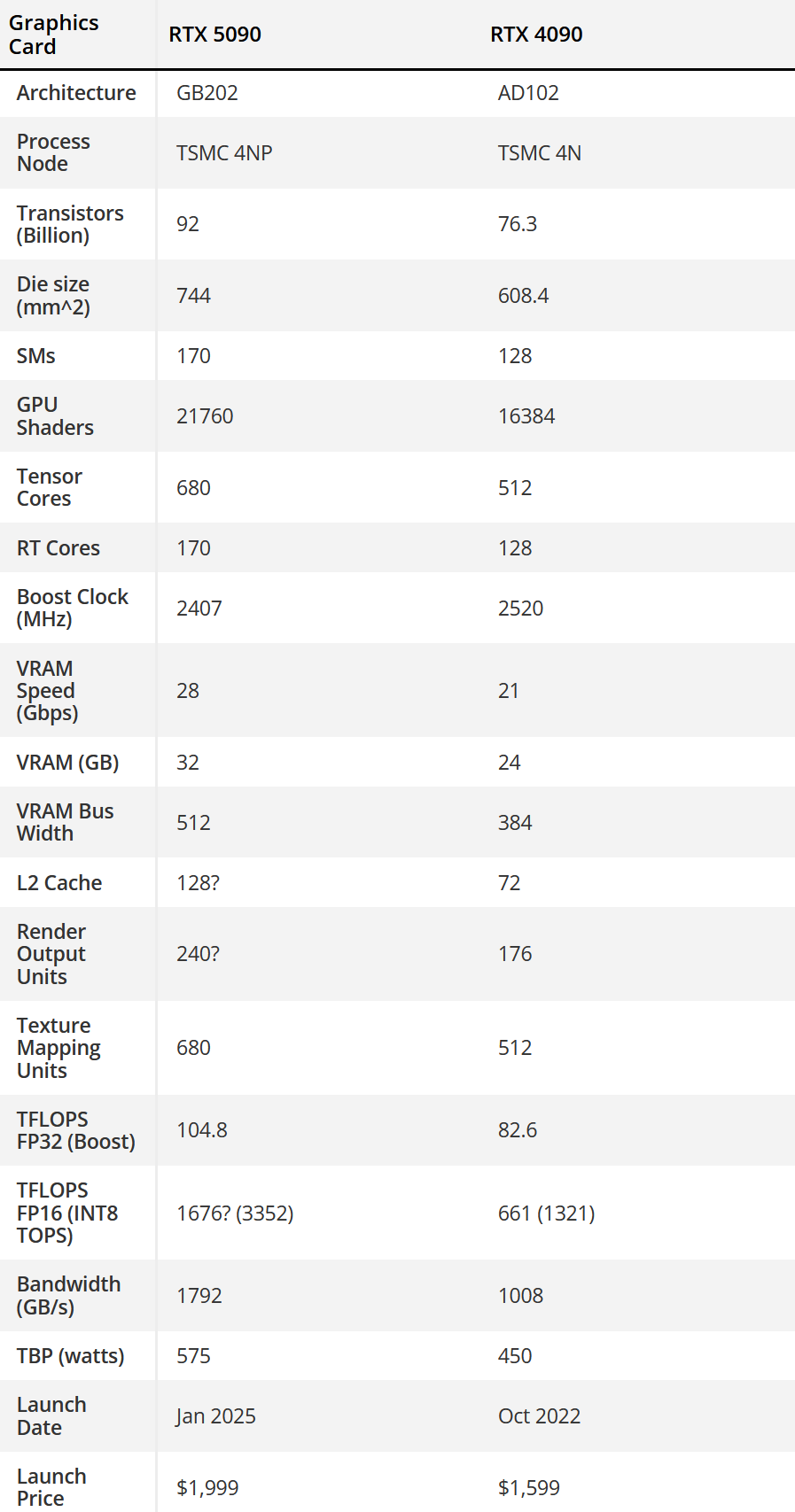
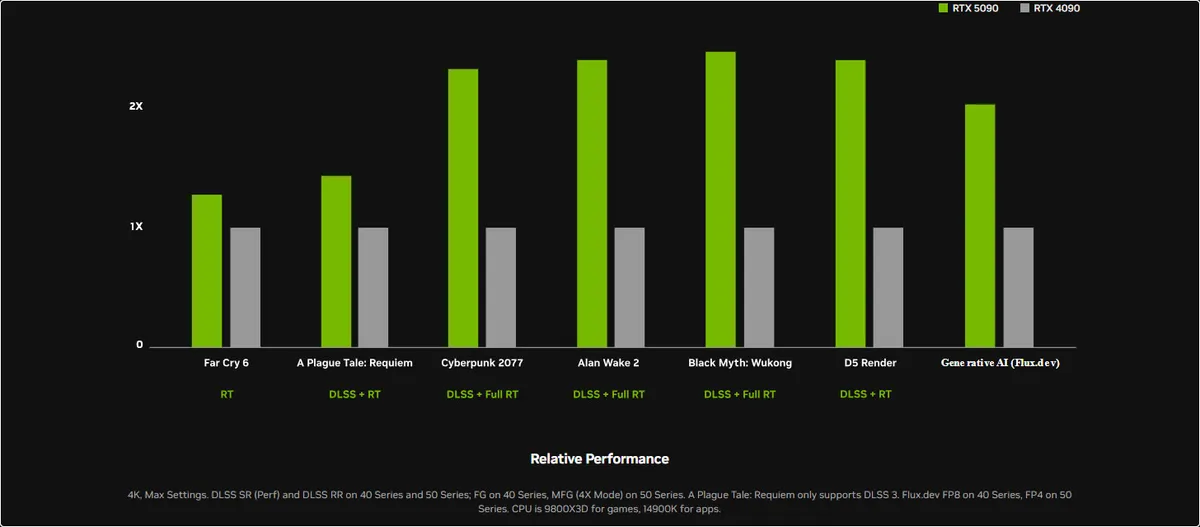
It looks like the 5090 is going to have a bandwidth of 1,792 GB/s. Memory bandwidth is a good proxy for performance when all else is equal because GPU manufacturers usually try to ensure there is no single overspecced component. Large memory buses, in particular, are quite expensive and are normally avoided unless absolutely necessary. Since the 4090 has a memory bandwidth of about 1,000 GB/s, the performance gain should be around 80%.
However, it’s possible that the 5090 is becoming so fast that the CPU may start being a bottleneck, even at 4K resolution. It’s also possible that NVIDIA has improved the compression algorithms, allowing the 5090 to achieve significantly more than 80% effective memory bandwidth compared to the 4090.
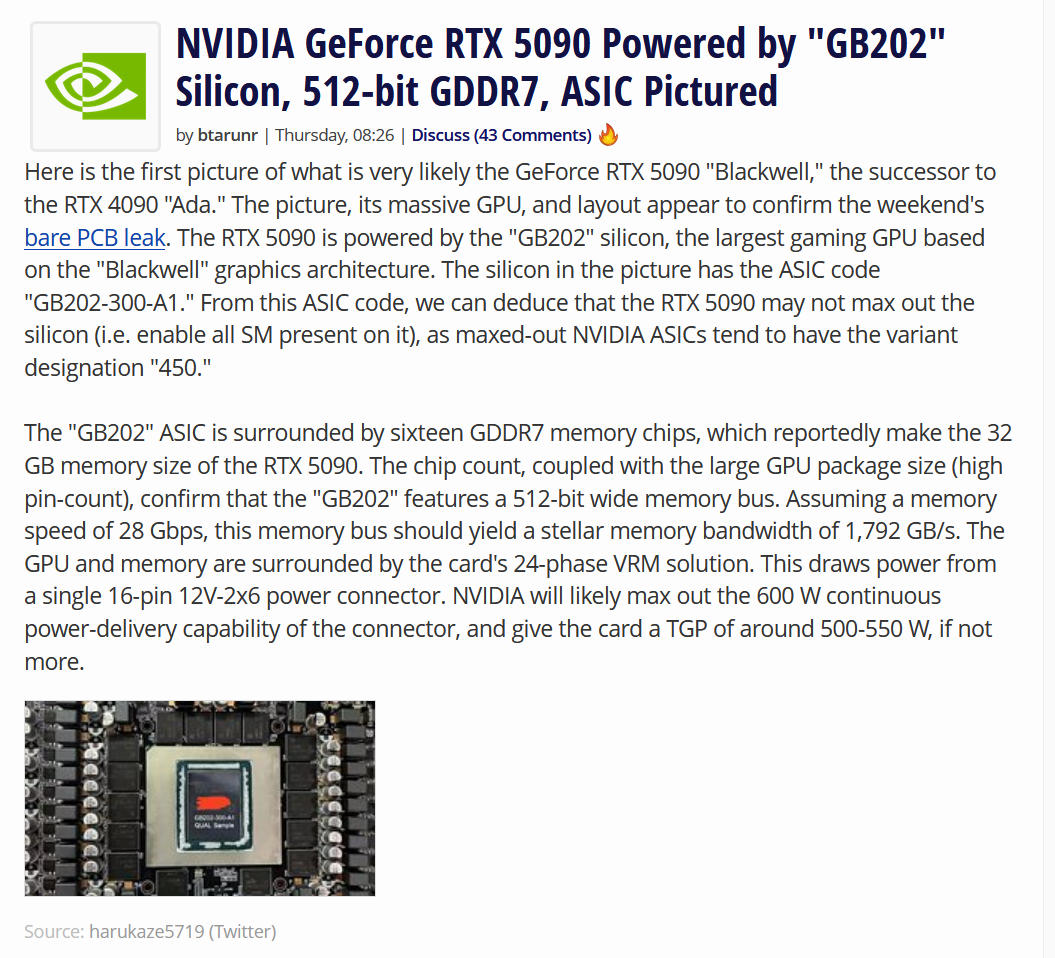
Sources:
https://www.techpowerup.com/330230/nvidia-geforce-rtx-5090-powered-by-gb202-silicon-512-bit-gddr7-asic-pictured
https://www.techpowerup.com/gpu-specs/geforce-rtx-4090.c3889
